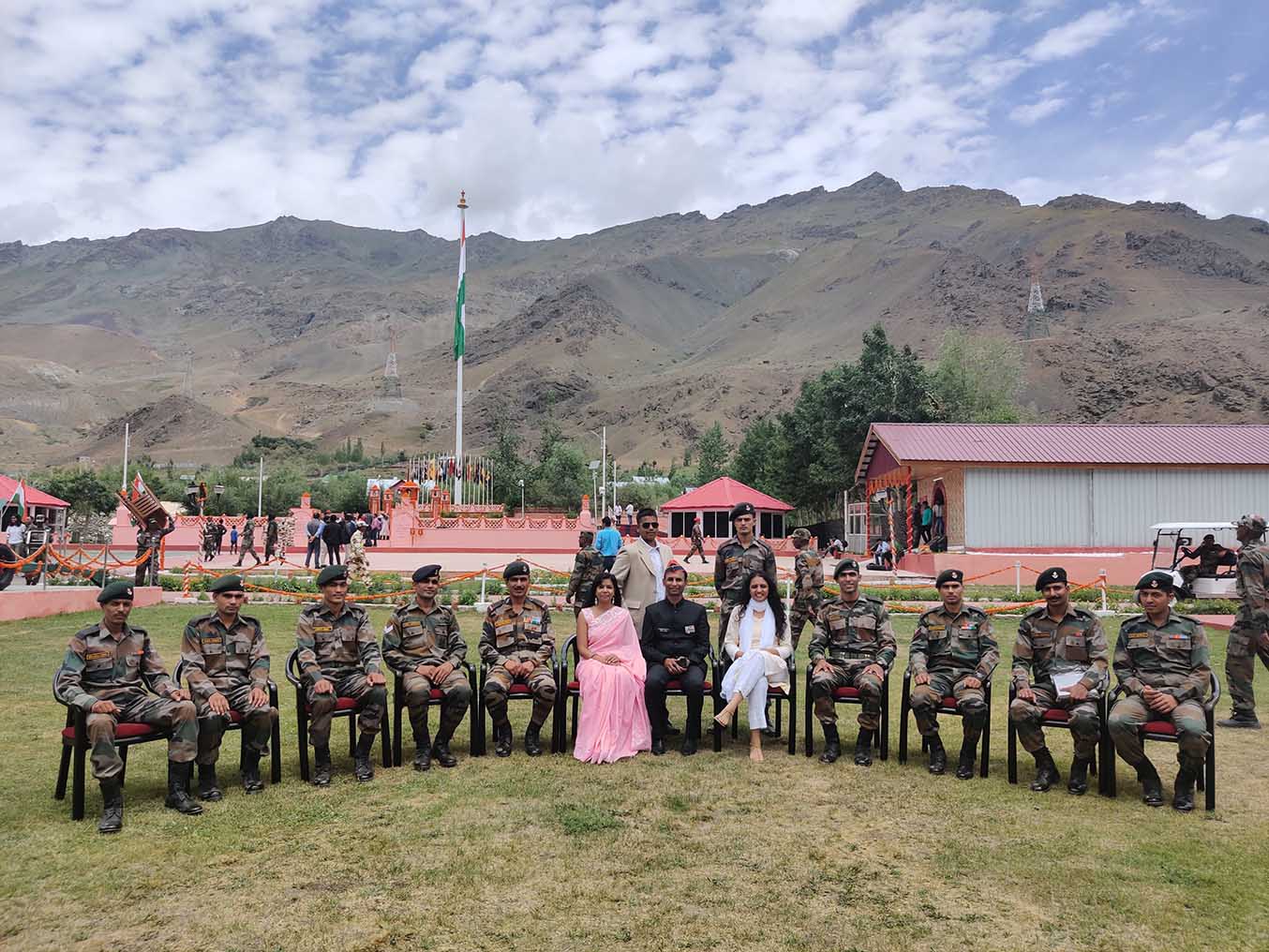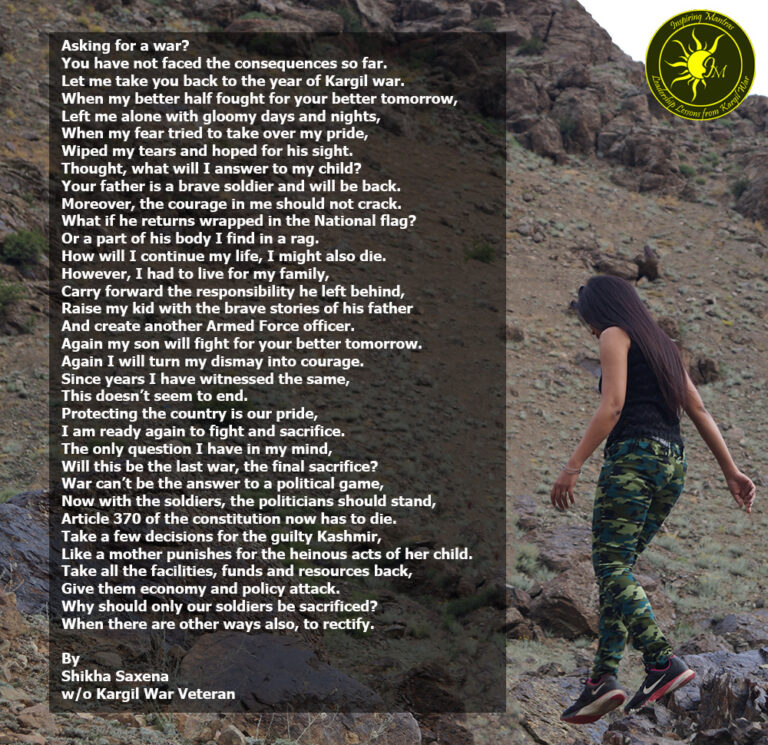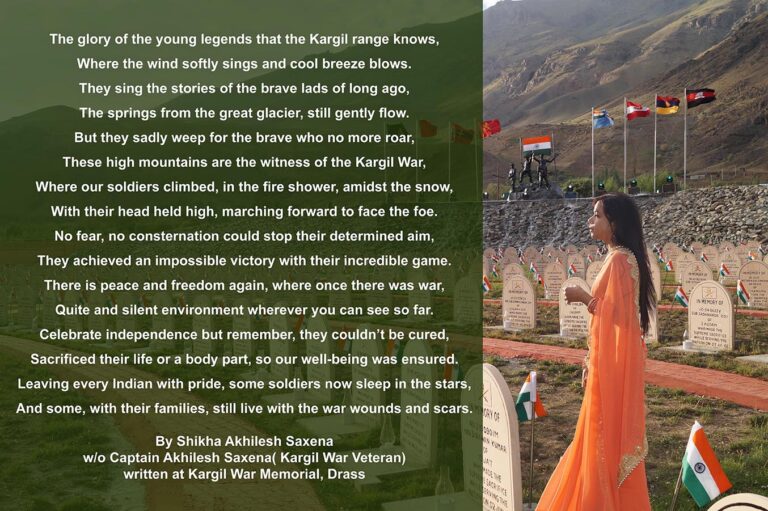Dear Friends,
Since 14th February I am restless and not able to sleep well. Pulwama attack dragged me back to the year of the Kargil War, when Captain Saurabh Kalia, an officer of the Indian Army, along with five other soldiers of his patrolling team were captured alive and kept in captivity by the Pakistani army where they were tortured and then killed. This was only the first incident of the Kargil War. Later, many young soldiers also sacrificed their lives during the War. Moreover, many lost their limbs, eyes, or other body parts.
From 1999 till date, our soldiers have been alerted on the border posts of Kargil even at -30 degrees Celsius. Only snow everywhere, severe winters, and the most unfavorable conditions for human survival are not able to shake the determination and dedication of our soldiers toward our nation and their duty. So please don’t tell them what to do in the pride of our country. They are always devoted to that.
Now have a look at the current situation. J&K gets 10% of Central funds with only 1% of the population. The State has received Rs.1.14 lakh crore in grants over sixteen years (reference: The Hindu newspaper JULY 24, 2016). It means the amount which is collected from our taxes provides food, education, and medical facilities to the people of Kashmir. Soldiers of our Armed Forces always provide them support in case of flood or any other natural disaster. Then why are our Armed forces not safe there? Only because of Article 370 which was implemented by Jawaharlal Nehru back then.
Have a look at Article 370. What is Article 370?
Key Points
- The special status to Jammu & Kashmir
- Unlike other State legislative Assemblies, J&K legislature has a six-year term.
- Jammu & Kashmir has two flags; a separate State flag along with the National Flag.
- Insulting of national symbols is not a cognizable offense in Jammu & Kashmir.
- Most of the laws except defense, foreign affairs, finance and communication, passed by Indian Parliament need to be approved by the State Government before they are made applicable in the State.
- The citizens of J&K are governed by State-specific laws which come under the Constitution of Jammu and Kashmir, instead of those for the rest of India.
- Under Article 370 the Indian Parliament cannot increase or reduce the borders of the State.
- The Supreme Court has no jurisdiction in the State of Jammu & Kashmir.
- The residents of J&K enjoy dual citizenship, but they could lose the J&K citizenship if they marry residents of other States.
- If a woman marries a man in the other Indian States, she loses her citizenship. Whereas if any woman marries a Pakistani, she will be entitled to have a citizenship of Jammu & Kashmir.
- The Article also gives Pakistan’s citizens entitlement to Indian citizenship, if he marries a Kashmiri girl.
- Majority of Indian laws including RTE, RTI and agencies like CBI, CAG are not applicable in J&K.
- No outsider can purchase land in the State.
- The Centre has no power to declare a financial emergency under Article 360 in the State.
- It can declare an emergency in the state only in case of war or external aggression.
(Reference: https://www.quora.com/What-is-Article-370-s-main-point)
By Shikha Akhilesh Saxena


